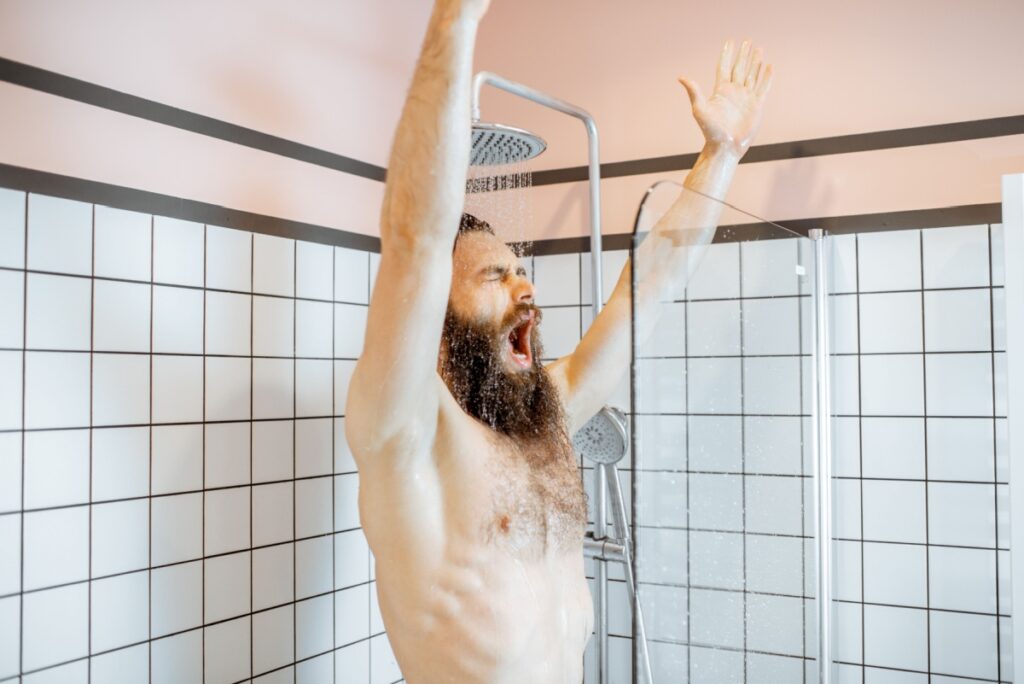Have you ever stood shivering in your shower, waiting for that warm water to trickle out? Imagine those painful moments when cold water cascades down your back, sending instant shivers through your body, and there’s no end in sight. You’re standing there, watching the clock, waiting a minute after agonizing minute for your water to heat up. Those few moments feel like an eternity.
So, what can you actually do about this frustrating problem? Slow-heating water is a far more common problem than you think, and we’ve got some game-changing tips that will transform your hot water experience.
Why Hot Water Takes So Long to Come Out
Your hot water heater is more complex than you might realize. When hot water moves slowly through your plumbing system, multiple factors could be causing the delay. Water pressure, heating element condition, and the overall age of your hot water systems play crucial roles in determining how quickly you get that desired temperature.
A typical electric water heater or gas burner works hard to transform cooler water into a comfortable stream, but age and maintenance can dramatically impact its performance. The dip tube inside your water heater, responsible for directing cold water to the bottom of the tank, can deteriorate over time, causing inefficient heating. Low hot water pressure might indicate mineral buildup or potential water leaks that compromise your entire hot water experience.
Checking Your Water Heater’s Age and Condition
Older water heaters struggle more with producing instant hot water. Most residential hot water systems last between 8 and 12 years before significant performance issues emerge. If your unit is approaching or exceeding this age range, you’re likely experiencing slower heating times and reduced efficiency.
Inspect your hot water heater for signs of wear: rust-colored water, strange noises during heating, or visible corrosion around connections. These symptoms suggest your unit might be nearing retirement. Professional plumbers can conduct a comprehensive assessment to determine whether repair or replacement makes more financial sense for your situation.
Installing a Recirculating Pump Solution
How Recirculating Pumps Work
Recirculating pumps represent a revolutionary approach to instant hot water delivery. These clever devices continuously circulate water through your hot water pipes, maintaining a constant temperature.
Benefits for Your Home
These pumps keep water moving, dramatically reducing waiting times and water waste. You’ll save both time and money on your monthly utility bills.
Installation Considerations
Professional plumbers can help select the right pump for your specific plumbing system, considering factors like pipe layout and water supply characteristics.
Cost-Effectiveness
While initial installation requires investment, long-term savings on water and energy make recirculating pumps an intelligent home improvement strategy.
Examining Your Shower Heads and Flow Rate
Your shower heads can impact your experience with hot water. Older or inefficient shower heads can create a perceived slow heating by restricting water flow. Modern low-flow shower heads optimize water pressure and heating efficiency, providing a more consistent temperature with less waste. Check your current shower heads’ flow rate. Standard models typically range between 2.5 and 5 gallons per minute. Upgrading to more efficient models can improve both water pressure and heating speed. Look for Water Sense-labeled products that balance conservation with performance.
Professional Maintenance and Inspection
Professional maintenance prevents many hot water heating issues (and tons of other plumbing issues, too). A skilled plumber can flush your system, removing mineral buildup that impedes heating efficiency. They’ll inspect heating elements, check for potential water leaks, and ensure your entire system operates at peak performance. Annual inspections catch potential problems before they become expensive repairs. A professional can evaluate your electric element, gas burner, and overall system health, providing recommendations tailored to your home’s specific needs.
When Replacement Becomes Necessary
Sometimes, replacing your entire hot water heater is the most cost-effective solution. Modern units offer dramatically improved efficiency compared to older models. Consider energy-efficient options like tankless water heaters or high-efficiency electric models that provide faster heating and lower utility costs. Get your new water heater and immediately experience the benefits of hot water.
Friend’s Plumbing: Your Water Heater Experts in Tampa, FL
We’re ready to solve your slow hot water challenges. Friend’s Plumbing offers water heater repair and installation services throughout Tampa, FL. Our professional team can speed up your heated water delivery, helping you enjoy comfortable showers, relaxing baths, and convenient hand-washing without frustrating delays.




